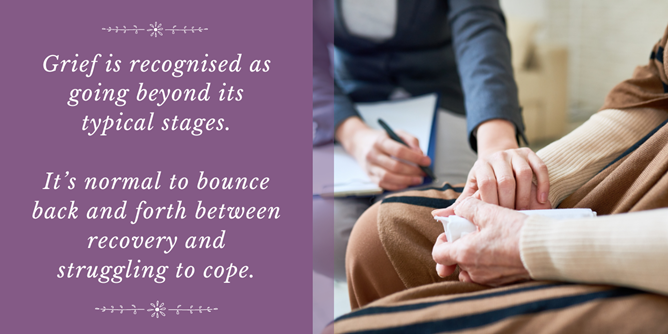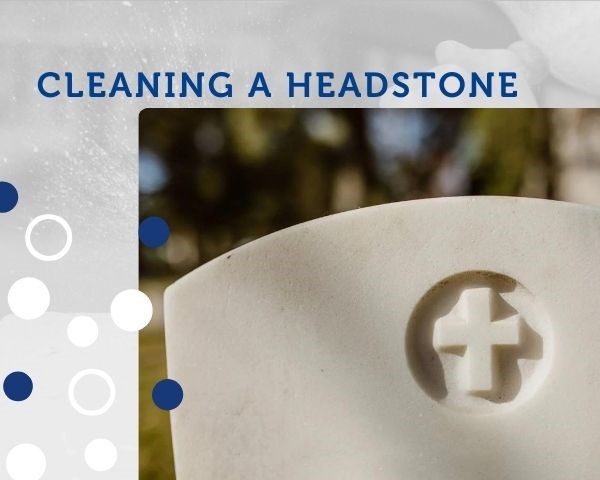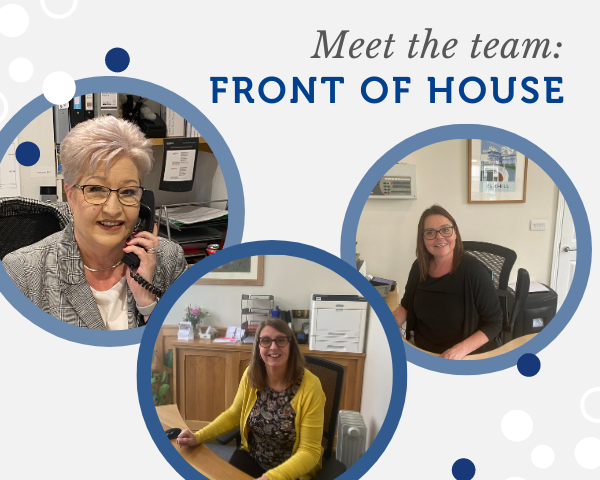Knowing When to Ask for Help: Resources and Advice
We address a range of topics in this blog, many of which intersect the complex emotions and events we all experience in life. Grief is a natural emotion, but the way we each process it can vary from person to person. It's important to recognize that even though it can be a difficult subject to approach, it's possible for everyone that grief can lower their ability to engage with important parts of their lives and must be addressed.
Grief has a physical effect on our brains. It reduces our levels of serotonin and dopamine - a common symptom of many mental health conditions, and should therefore be treated with the same caring response, not just from others, but towards ourselves. It is vital that we know when and how to ask for help if we are struggling to live with these emotions.
Speaking to Family and Friends
As a first port of call, speaking to loved ones is a step towards addressing how you are feeling. Oftentimes grief can be worsened by the feelings of isolation that come from no longer having someone in our lives, and opening up to someone close to us can alleviate some of our burden. Talking in a familiar environment to someone we are comfortable with can be a relieving experience where we are more willing to fully open up; alternatively, some people find that talking to someone such as a professional, who has no connection to the situation, can be easier for them. Depending on the severity of what you may be going through and the weight on loved ones if they are affected themselves, it may well only be a situation that can be helped through seeking specialised advice.


NHS Support
It is true for a great many of us that we will know someone who has accessed the NHS for support with their mental health. It's also true that some of these stories will not always be positive pertaining to waiting times and the level of support it was possible to access. What is important is not to discount a possible source of help because of other people's experiences. There are a range of services, resources and next steps on offer that are worth at least trying if you are struggling.
Depending on how you are feeling there are a number of ways to access support through the NHS. Booking an appointment with your GP to discuss your options is a great idea, as together you will be able to look at the full picture of all the services that are available locally to you. If you feel you are worsening and cannot wait for an appointment, there are urgent NHS options where you are able to access immediate support:
- If you feel you or someone you know is at risk, calling 999 is not only reserved for physical emergencies and is always an option if required. 111 is available in cases where urgent help is required but it is not an emergency. As it is put on their website: "Your mental health is as important as your physical health. You will not be wasting anyone's time."
- There may be a 24-hour helpline local to you alongside these, all you have to do is input your location here.
Cruse
Cruse is the UK's leading bereavement charity, different to NHS services as it specialises in providing support to people who have suffered loss. They are an incredible resource, with a wide array of services there to help people who are processing grief. Their prominent service is a free helpline where anyone can call to talk about what they're going through, available on
Alongside their helpline, Cruse offers an online resource for understanding grief, as well as one-to-one support with grief professionals and in-person local support at over 80 locations across the UK. What can make services such as Cruse so beneficial when dealing with these difficult emotions is firstly the specialised nature of the counselling, and secondly, the community that is established around it. Many people find that connecting with others who are also dealing with grief can be transformative - meeting people who know exactly how they feel, who they can bond with and find purpose in helping them find wellness on the other side of loss.
It is important to take time to assess the options open to you. Not one solution works for everyone, and it may take time to try different things to find a method that helps, but you will never be wasting anyone's time. There is a wealth of help there to support you and no shame in asking for it. Along with this resource, we have also created a list of self-care tips, as well as the best ways to support someone else who has suffered loss.




